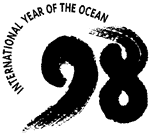

A report prepared for the
Inland Water Resources and Aquaculture Service
of the FAO Fisheries Department
by
Andr� G. Coche
Consultant
Rome, Italy
FOOD AND AGRICULTURE ORGANIZATION OF THE UNITED NATIONS
Accra, 1998
The designations employed and the presentation of material in this publication do not imply the expression of any opinion whatsoever on the part of the Food and Agriculture Organization of the United Nations concerning the legal status of any country, territory, city or area or of its authorities, or concerning the delimitation of its frontiers or boundaries.
In the context of the Strategy for International Fisheries Research, the follow-up to the Study on International Fisheries Research (SIFR, 1989-91), FAO launched in 1992 a Regional Study on Aquaculture Development and Research in sub-Saharan Africa, in collaboration with the Economic Commission for Africa and the European Commission.
The resulting synthesis on the information presented in 12 national reviews on development and research needs provided the basis for proposing an Indicative Action Plan for Aquaculture Research in sub-Saharan Africa (CIFA Technical Papers 23 and 23 Suppl., 1994). This Action Plan was presented to and discussed with the countries involved in the Second Session of the Working Party on Aquaculture of the Committee for Inland Fisheries of Africa (CIFA - Harare, Zimbabwe, 13-17 September 1993). It was endorsed during the Ninth Session of CIFA (Harare, Zimbabwe, 5-9 December 1994)
The Action Plan comprised eight regional research programmes, addressing themes which could alleviate identified development constraints. Among these research themes to be studied through specialized regional networks in the medium term were:
In 1997, as no positive response from donors had been elicited to start implementing the proposed research programmes, the Inland Water Resources and Aquaculture Service of the FAO Fisheries Department decided to go ahead using its own financial resources coupled with the Partnership Programme Scheme. A formulation mission was fielded in October 1997 to visit several countries in sub-Saharan Africa to study the existing possibilities for the initial establishment of a multidisciplinary Research Network for the Integration of Aquaculture and Irrigation, including fishery enhancement in small irrigation reservoirs.
Distribution:
Author
CIFA Mailing List
FAO Fisheries Department
FAO Regional Fishery Officers
SAFR, Harare, Zimbabwe
ALCOM, Harare, Zimbabwe
FAOR countries of mission
| Coche, A.G. Supporting aquaculture development in Africa: Research Network on Integration of Aquaculture and Irrigation. CIFA Occasional Paper. No. 23. Accra, FAO. 1998. 141p.ABSTRACTThis is the report of a mission fielded in October-November 1997 to visit successively Ghana, Burkina Faso, Mali, Zambia and Zimbabwe, previously identified as potential contributors to a research network on the integration of aquaculture and irrigation, including fishery enhancement in small water bodies. Available resources (infrastructure, staff, finances) for aquaculture and irrigation research, as well as the development status of these two sub-sectors, were identified and evaluated. Interest and willingness to participate in the network were ascertained. Main findings were the following:
Recommendations are as follows:
Burkina Faso: Institut de D�veloppement Rural Mali: Institut d’Economie Rurale Ghana: Water Research Institute Zambia: Mount Makulu Regional Research Centre
|
CHAPTER 7 AFRICAN NETWORKS INTERESTED IN IRRIGATION RESEARCH AND DEVELOPMENT